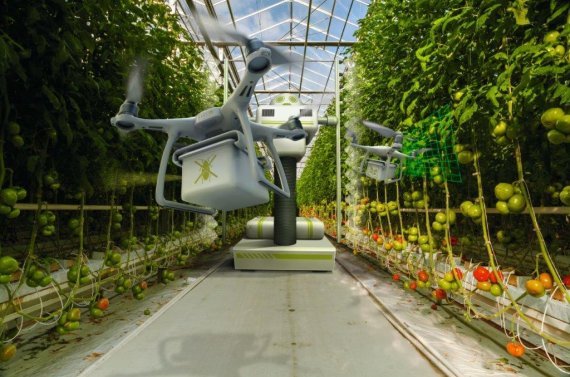© Pascal Tieman
On 12 and 13 September, 21 teams were assessed for participation in the Autonomous Greenhouse Challenge. An international jury scored the teams’ composition (20%), their approach using artificial intelligence (30%) and their results in a game of virtual tomato cultivation (50%). Five teams emerged, and starting December, each of them will be growing tomatoes remotely in a real WUR greenhouse in Bleiswijk.
WUR teams
The AiCU team consists of staff and students from Wageningen University and eight companies, including Evertill, NXP Semiconductors and Ibeo Automotive. A large part of the team also participated in the first edition of this challenge last year. This also applies for team The Automators, which consists of Wageningen researchers and students and the knowledge companies Delphy and 30Mhz.
Competition
The Korean team consists of researchers and students from Seoul National University, Samsung, the University of Liège and several companies. The Chinese team consists of researchers from the Chinese Academy of Sciences, the national centres for agricultural research and information technology and breeding company Syngenta. Team Automatoes, with researchers from research company Keygene, TU Delft and two horticulture knowledge companies, is the opponent of Dutch origin.
Game
An important part of the selection procedure was a game developed by WUR researchers that is based on a climate model and a crop cultivation model. The teams had to achieve the highest possible net profit with a virtual tomato production and could influence the temperature, amount of light, CO2 concentration and a number of cultivation-related parameters. As such, the models offered so many possibilities that a game situation arose.
AI cherry tomatoes
In December, the five remaining teams will start actually growing tomatoes for six months using artificial intelligence. An important aspect is that not only the yield of cherry tomatoes will be assessed, but so will their quality. Teams will also score points if they know how to use inputs such as water, food and energy efficiently and sparingly.
Last year, the challenge was won by the Sonoma team, which consisted of employees of Microsoft and PhD students from WUR and the University of Copenhagen.
Additional reading (partly in Dutch):
Competition for growing vegetables using AI has started
Team Sonoma wint Autonomous Greenhouse Challenge

